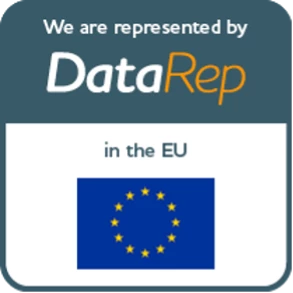How can personality theories be leveraged in marketing?
Personality theories have a long, rich history of engaging consumers, from the influence of Freud on 1960s advertising to the “Which Game of Thrones Character Are You?” quizzes on Buzzfeed.
In marketing terms they work because they enable brands to better understand audiences, going beyond general shared characteristics such as location and gender, and delving into the emotions and triggers that make people human. This insight is crucial for developing an effective marketing strategy and creating messaging that will have an impact that translates into tangible results.
The OCEAN Big 5 – otherwise known as The Big 5 Personality Test – is one of two major psychometric paradigms (the other being the Myers-Briggs Type Indicator) that have been successfully employed to break down personality for the purpose of better understanding an audience. This is how it works.
The Big Five Personality Traits
OCEAN = Openness, Conscientiousness, Extroversion, Agreeableness, and Neuroticism. These are the five personality traits that provide the foundation for personality. Individuals receive a score for each one, with the higher scores indicating which elements of the personality are the most dominant.
Openness
(Intellect or imagination, curiosity and creativity)
People who achieve a high score in the Openness trait tend to be creative or unconventional and open to new experiences and ideas. Imagination and insight are fundamental to Open people who are willing to be vulnerable, try new things – and who will almost always think outside the box.
If someone achieves a low Openness score they are more likely to be focused on routine, as opposed to variety, and to find abstract thought challenging.
Consumer relevance: often more liberal, risk taker, interested in tech innovation, places more importance on reliability than style.
Conscientiousness
(Tendency towards organisation/structure)
Procrastinators and those who prefer an unstructured approach to life don’t score highly for Conscientiousness. Instead, this is a person who has a tendency to control impulses, demonstrate impressive self-discipline and who prefers to follow a plan or schedule.
A high Conscientiousness score indicates a methodical individual who is persistent, thorough, predictable and a planner.
Consumer relevance: can be linked to self belief, tight money management, environmental concern and sensitivity to status.
Extroversion
(Energy source and interaction with others)
Most extroverts draw their energy from being around other people while introverts need to spend time alone to be able to reboot and recharge. People who score highly for Extroversion seek out social contact, are assertive and talkative, energetic and outgoing. They favour action over contemplation and are often keen to be the centre of attention.
A low score in Extroversion is usually associated with someone who is more introspective, who prefers their own company and who may experience social anxiety.
Consumer relevance: risk taker, overconfident, responds positively to music with vocals, driven by motives such as socialising and meeting people, stress relief, fun and enjoyment.
Agreeableness
(Orientation to others – how someone interacts with others)
Empathy and compassion define those who have a high Agreeableness score.
Getting along well with others and being caring, cooperative and sympathetic are also usually traits that are found in people who are high scoring for Agreeableness. Individuals who are strongly defined by this trait exhibit kindness, loyalty, patience and trust.
Consumer relevance: attracted to social innovation and environmental concerns. Not so interested in prestige, status, fashion consciousness.
Neuroticism
(Confidence, whether an individual is comfortable in their own skin)
All of us have some degree of emotional sensitivity and the Neuroticism trait is designed to identify how much someone worries.
Those who score low for Neuroticism tend to be more relaxed, secure and emotionally grounded.
High scorers will regularly experience awkwardness, pessimism, jealousy, fear, anxiety, self criticism and a lack of confidence.
Consumer relevance: compulsive buyer, willing to shop online, susceptible to mass behavior.
Leveraging OCEAN with consumers
Although we are not strictly defined by these personality traits they tend to provide a good indication of how individuals will experience the world, whether that’s interacting with colleagues at work or with retail brands.
For a retail market research agency, that has relevance for B2C businesses in a number of different ways.
Identifying consumers
- Finding consumers to target. Certain personality types have a tendency towards certain types of products, making them a natural fit for a specific brand.
- Recognising the “right” consumers. Being able to see consumer personalities sheds light on lifestyle preferences, which can enable brands to better identify which consumers are likely to be more responsive to their messages.
Categorising consumers
- Identifying specific tendencies and behaviours. Patterns of decision making and shopping habits can be identified to categorise consumers. When fed into marketing strategy and techniques this insight can considerably improve ROI.
- Enabling segmenting of customers into personality types, as opposed to more generic categories. With this kind of insight it’s much simpler to ensure that the right message is getting to the right person.
Targeting consumers
- Refining messaging. Where marketing messaging has been defined with the personality traits of the target consumer in mind it is likely to have a much more significant impact. Mass campaigns are not as efficient as those that use customised messages.
- Enabling the use of more quantitative techniques to target consumers. For example, targeting women who react to celebrity endorsements, are willing to shop online and have an affinity with fitness and the outdoors provides a lot more to work with than “women in London aged between 20 and 35.”
- Promoting a deeper understanding of the consumer. Personality insights tend to result in more creative marketing and brand management, based on deeper insights into a potential target audience.
- Personalising the brand. Numerous studies suggest that consumers relate to brands as they would another person. Stronger and more long-term relationships can be built with consumers where brand personality has been refined according to the traits of the target audience.
An example of OCEAN in practice
Although not a particularly popular example of how effective OCEAN is, the work that Cambridge Analytica did to influence voters in the 2016 US presidential election threw a spotlight on the use of personality theories.
While there were clearly some ethical issues surrounding the way that Cambridge Analytica operated, the results achieved were interesting. The firm gathered psychological survey data and then built algorithms to predict psychological traits.
This enabled the group to model consumer personalities and then micro-target voters based on what their profiles indicated about key issues, such as immigration. Cambridge Analytica is far from the only firm that has used these methods.
Experian, for example, offers services to “influence voting behavior by interweaving demographic, psychographic, and attitudinal” characteristics. In the UK, both the Labour and Conservative parties are clients.
The OCEAN Big Five Personality Traits provide another layer of insight when it comes to better understanding consumers, who they are and what they want. In an increasingly competitive environment, personality theories make it possible to establish genuinely effective ways to identify, and reach, the right consumers for your brand.
Contact
For more information on the OCEAN Big Five Personality Traits please contact Brandspeak on +44 (0)203 858 0052 or at enquiries@brandspeak.co.uk














